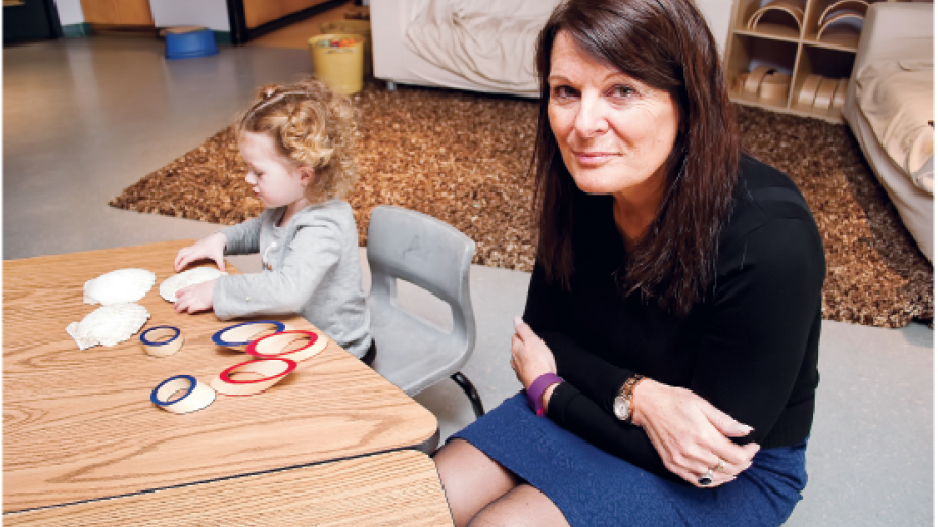When Arash Memari decided to emigrate with his young family from Iran to Canada, he briefly considered choosing Vancouver because he has friends and family here.
Instead, he chose to move to Montreal, and it’s not just because the cost of housing was much less.
“They take care of your kids very well, even when they go to school,” said Memari, referring to Quebec’s $7-a-day child-care system. Memari is now working in Toronto and paying much higher child-care costs. In contrast, he calls daycare in Quebec “cheap and awesome.”
Vancouver families face some of the highest living expenses in Canada. Coupled with the most expensive housing anywhere in the country, child-care fees in Vancouver are the highest in the province and, after Toronto and Ottawa, the third-highest in Canada, according to a December 10 report from the Canadian Centre for Policy Alternatives (CCPA).
Fees in neighbouring Burnaby and Surrey are slightly lower: while median toddler fees in Vancouver were $1,180 per month, parents in Burnaby paid $1,000 per month and in Surrey, $900. A family paying the average monthly fee in Burnaby would pay $2,160 less per year than a family in Vancouver.
Read: Moms go to work — and pay more taxes — when child care is affordable
Meanwhile, the median family income in Vancouver for 2013 was $73,390, compared with $101,070 for Ottawa, according to Statistics Canada.
Higher land costs explain some of the discrepancy in fees, but Sharon Gregson, an advocate for publicly funded child care, said there is little transparency in how various child-care providers are setting and spending fees, even though many operators receive government grants.
“It’s a market system,” said Gregson, director of family and child services at Collingwood Neighbourhood House. “Just like any other product, it’s what the market will bear.”

After Toronto and Ottawa, Vancouver has the highest child care fees in the country, according to the Canadian Centre for Policy Alternatives' December 2015 report
Families struggle not only with the cost of daycare but also with the frustration of long wait-lists. The City of Vancouver has determined that 7,500 more child-care spaces are currently needed in the city, and it plans to build 1,000 between 2015 and 2018.
But the CEO of one for-profit company says Vancouver’s stricter design guidelines have prevented her from opening more daycares in the city. Child-care centres in Vancouver must have outdoor play space located beside the centre, and they require more space per child than provincial requirements dictate.
“We have all sorts of different spaces we’ve been able to find, but nothing with the right play space,” said Victoria Sopik, CEO of Kids & Company, noting the requirement is especially hard to meet in downtown Vancouver.
Other municipalities will allow a centre to open if there is appropriate outdoor space nearby.

“We prefer it to be right on the site of the child care, but sometimes that is not possible,” said Margaret Manifold, social planner for the City of Burnaby. “If … there’s a safe route to get there and they have a plan for how they will manage to get children to and from the park, we’ll be OK with that.”
Vancouver’s guidelines are based on optimal health and safety for young children, said Mary Clare Zak, social planner for the City of Vancouver. She called provincial licensing requirements the “bare minimum” and said Vancouver’s rules make it possible for children to be outside more often. The City of Richmond has adopted the same guidelines.
The fee differences across the country often come down to what staff are paid and how much provincial governments subsidize child-care centres, said David Macdonald, co-author of the CCPA report.
For instance, Manitoba and Prince Edward Island have capped fees and made up the difference through subsidies, while in Regina and Saskatoon, staff tend to be paid less.
According to the CCPA report, the average salary of a child-care worker in a licensed group centre is $25,000 a year. Sandra Menzer, executive director of Vancouver Society of Children’s Centres, said the average child-care worker annual wage at VSOCC is $43,000. Sopik said she didn’t know how much child-care workers are paid at Kids & Company, but an online job advertisement for an early childhood education supervisor position at the company offered $15 to $17 an hour (roughly $31,000 to $35,000 a year, based on a 40-hour work week).
The patchwork system has resulted in parents paying high fees in some cities, while workers responsible for caring for young children earn low wages.
“There is not a lot of money to be made in child care,” Macdonald observed.
Gregson, a proponent of a $10-a-day child-care system for B.C., hopes the new federal government will turn its attention to the problem, noting that building new child-care spaces is part of the federal Liberals’ infrastructure spending plan.
@jenstden




